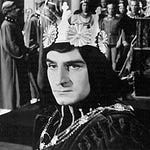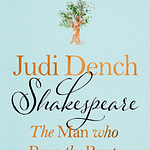This is the first essay about Romeo and Juliet, which discusses the dark side of Romeo. The next part will discuss Juliet and the lightning motif. You can find all the Shakespeare essays here, and the schedule for future meetings here. The video is a summary of the argument below, with some details of the play’s history.
A love-death story
Romeo is Hamlet in love, said William Hazlitt. He didn’t know how right he was. Like so many critics, Hazlitt saw the lyrical romance of Shakespeare’s poetry in this play, but didn’t see clearly enough the dark, almost nihilistic, part of Romeo.
It’s true, Romeo and Juliet is one of the great romantic stories in English. Few can resist its powerful charms. It has, as Hazlitt said, “the buoyant spirit of youth in every line.”
But it is more than this. A.D. Nuttall calls it the finest Liebestod in English, Liebestod being a love-death story.
In the introduction to the RSC edition of the Complete Works, Jonathan Bate said that Shakespeare is fascinated by paired ideas, by opposites. Whenever Shakespeare introduces a concept in his plays, he soon brings in the counterpoint.
Counterpoint in Romeo and Juliet begins in the opening line, “Two households, both alike in dignity…”. The feud between the Montagues and Capulets is one of many pairings in the play. Mercutio is counterpoint to the nurse, Paris to Tybalt, and so on.
The core pair of opposites, though, is Romeo and Juliet. She represents light and Eros, the love drive, constantly compared to the sun, the stars, the torchlight. He represents darkness and Thanatos, the death drive, constantly in the shadows.
In Romeo and Juliet, death is the counterpoint to love, as light is the counterpoint to dark. Death doesn’t arrive due to the operations of fate, by chance. It is there, from the beginning, in the character of Romeo.
It comes from the darkness within. Someone should do a production where this darkness is made explicit in Romeo, where we are cringing, crying out to Juliet to warn her against this dark and moody soul.
Wild madness and revenge
Some critics used to think Romeo and Juliet is a lesser play, because it is not about flawed character, but the mechanical workings of fate. Not so. The character’s choices, and their flaws, create the tragedy.
Romeo and Juliet begins in the mode of Courtly Love: love of a woman from the distance, and the replacement of one love by another are two of the “rules of love”. It hinges to tragedy in Act III, with the death of Mercutio and Tybalt, abandoning courtly love for a corrupted chivalry. Romeo turns from romance to revenge.
Aristotle uses the word hamartia to describe mistakes made by tragic heroes, which switch their luck from good to bad. Romeo’s mistake is to get between Tybalt and Mercutio during the fight and then to chose revenge over love. On his honeymoon, he killed Tybalt.
Romeo has what Nic Panagopoulos called an “unresolved inner conflict between a weak will-to-live, on the one hand, and a strong death wish, on the other.” The killing of Tybalt unleashes a latent madness in Romeo. Revenge, as Francis Bacon said, is a kind of wild justice.
Romeo becomes increasingly wild in the second half of the play. The Friar warns him, “thy wild acts denote/ The unreasonable fury of a beast.” Outside the tomb, Balthazar says, “Your looks are pale and wild, and do import/ Some misadventure.” (Remember the prologue—misadventured piteous overthrows. This is not fate, it is a choice, a mistake.)
Speaking like the hero of revenge tragedies (who typically feign madness to seek revenge), Romeo says at the end,
The time and my intents are savage-wild,
More fierce and more inexorable far
Than empty tigers or the roaring sea.
Juliet, too, had “wild looks” when she asks for the Friar’s help—but she was wild with love, he with death.
Mercutio tells Romeo, with the insightful banter of a clown, “thou hast more of the wild-goose in one of thy wits than, I am sure, I have in my whole five.” The seed of his wild madness is there from the start.
Romeo is almost reconciled to the world by Juliet. He is not a villain, not as dark and irredeemable as Tybalt; he has a tragic flaw.
Seeing this strain of his character makes him more tragic, not less.
Antic Romeo, prototype Hamlet
From the start, Romeo seeks death, however unconsciously. He is the origin of Hamlet. And that makes him a much darker figure than we often realise. As with Hamlet, the people who get too close to Romeo—Paris, Mercutio, Juliet—end up dead.
Self-obsessed like Hamlet, Romeo first appears talking of the “griefs of mine own”. He “lives dead” because of Rosaline’s rejection.
“Living dead” is a metaphor of unrequited love, a trope of courtly love poetry (which was popular in the sonnet-writing 1590s, when Romeo and Juliet was written) but it is also a darker image. The Friar later describes Juliet as a “living corpse” when she lies drugged in the Capulet tomb—a tragic contrast to the metaphorical “living death” of Romeo’s self-regard.
Like Hamlet, who is “too much in the sun”, Romeo hides in the dark. And he is seen drifting along, lost to his self-sorrow. Benvolio says,
…underneath the grove of sycamore
That westward rooteth from the city’s side,
So early walking did I see your son:
Towards him I made, but he was ware of me
And stole into the covert of the wood
This could be Hamlet. “You know, sometimes he walks four hours together/ Here in the lobby,” says Polonius. A.D. Nuttall finds the origins of Romanticism here, the “strenuously a-social” Romantic hero—that is just as true of Hamlet as it is of Romeo.
Juliet says she wants Romeo to be like a bird, who hops from her hand, “like a poor prisoner in his twisted gyves.” Shakespeare reworked that when Ophelia describes Hamlet’s madness, “his stockings foul’d,/ Ungarter’d, and down-gyved to his ancle.”
Benvolio asks, “Why, Romeo, art thou mad?” and Romeo, having previously described love as a “a madness most discreet”, now says,
Not mad, but bound more than a mad-man is;
Shut up in prison, kept without my food,
Whipp’d and tormented and—
These line immediately bring to mind Hamlet telling Rozencrantz and Guildenstern that Denmark is a prison, and the world is full of “confines, wards and dungeons”, that he is “bounded in a nutshell”.
Just as Romeo is about to set forth a stream of madness (“Whipp’d and tormented and—”,) a messenger interrupts, inviting them to the ball. At that ball, Tybalt says Romeo is “cover’d with an antic face”, a reference to Romeo’s mask. Antic means “ridiculously wild”, which is how we would describe his emotions: volatile, impulsive, uncontrolled.
And antic, of course, is the word Shakespeare later used to describe Hamlet’s madness, his “antic disposition”.
The antic madness, the wildness, the “living-dead” quality of Romeo are the core of this tragedy, not fate.
The fault is not in our stars but in ourselves
Act III, when Mercutio is killed, opens with talk of the hot weather. (It is July, the month of Juliet’s birth, source of her name. It will also be the month of her death, foreshadowed by the nurse’s mention of her dead twin.)
Benvolio implores Mercutio to leave, “For now, these hot days, is the mad blood stirring.” Many of Shakespeare’s lovers go a little mad, but the mad blood was stirring in Mercutio long before the hot days arrived, as it was with Romeo. Think of the erratic, volatile ending of the Queen Mab speech, his reference to open-arsed maids. The man is an anarch, an archetype of chaos.
The heat makes them mad; the fight begins; Romeo intervenes; Mercutio dies. Why came you thus between us? Now Romeo makes his mistake. Romeo says,
O sweet Juliet,
Thy beauty hath made me effeminate
And in my temper soften’d valour’s steel!
Courtly love has weakened him and he blames this for Mercutio’s death. He dodges responsibility for interfering in the fight. Then he says,
Away to heaven, respective lenity,
And fire-eyed fury be my conduct now!
Romeo’s revenge is a choice. Darkness now prevails over light in his character. Shakespeare’s true villains, like Iago, make open choices to be devilish. Tybalt is the closest to Iago in this play. That tendency is in Romeo too.
Although Romeo’s words are a trope of revenge tragedy, he is not a trope: he is a romantic hero troubled by his dark core. He knows that death is what gives life its urgency and desire; now those desires have become deathly. As Harold Bloom said, sexual romance becomes erotic when it is in the shadow of death. Romeo is that shadow for Juliet.
It is in this way, under the heat of the sun, that Romeo and Juliet are “star-crossed”, as Joan Ozark Holmer says: the implication is not that fate compels their death, but that under the hot sun, the wild madness blooms in Romeo, putting him at crossed intents with Juliet.
Sharp misery had worn him to the bones
The darkness that drives Romeo is once more unavoidably revealed when he purchases poison from the apothecary.
I do remember an apothecary,—
And hereabouts he dwells,—which late I noted
In tatter’d weeds, with overwhelming brows,
Culling of simples; meagre were his looks,
Sharp misery had worn him to the bones:
Memory catches up with Romeo, here. He has filed away this man’s misery (including, in the full speech, many details of his beggarly shop.) Romeo preys upon the apothecary: this is not spontaneous. The last time Romeo saw the apothecary,
Noting this penury, to myself I said
‘An if a man did need a poison now,
Whose sale is present death in Mantua,
Here lives a caitiff wretch would sell it him.’
Noting this penury is a shocking remark. What gripped Romeo that he would have made that observation? This happened before the play, before the fight, before Juliet. Some despair lives in him, some dark depression that now rises up. This speech has not the frantic lover’s voice, but the tone of a man so consumed by a dark mood he cannot shake off his qualms and quails at what he feels himself doing, pulled along by the force of his own mind.
“O mischief, thou art swift/ To enter in the thoughts of desperate men!” It is Romeo’s thoughts, his inner turmoil, that drives him to buy the fatal poison, not fate.
The madness of a moment
Romeo’s tragedy is that the small seam of nihilism in his character allowed madness in for a moment, and then he cannot keep it out. There is darkness in him that cannot be overpowered by the light. When they meet, in the blazing lights of the ball, Romeo says to Juliet, “Thus from my lips, by yours, my sin is purged,” a romantic pun, but one which expresses the hope that what is dark in him can be purged by her, a recurring motif. Sin as a verb refers to his kiss; but as a noun, it means the darkness within him. He wants he to save him: she cannot.
He goes on, “Give me my sin again.” That is the sin inside which he chooses when he kills Tybalt. Even love, even Juliet cannot purge him of those troubles. Love and death are irresistibly entwined.
Poor Romeo is too troubled to be saved. Antic madness lurks in him.





